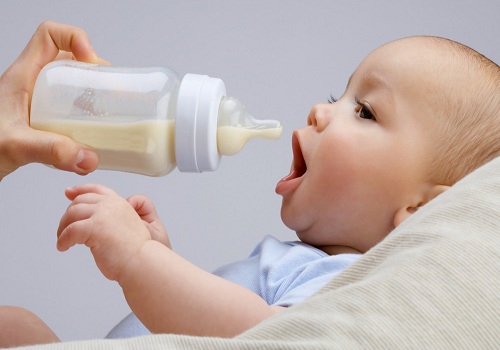LACTOSE INTOLERANCE
When a person suffers lactose intolerance, it means that his/her body does not produce a sufficient amount of the enzyme lactase which is necessary to digest lactose that is the main sugar in milk and its derived products. As a result, lactose is not completely digested and remains in the intestine, causing gastrointestinal problems. This usually causes discomfort, but it is not dangerous.
Babies born prematurely sometimes do not produce adequate amounts of lactase at first. This is because the production levels of this enzyme normally increase towards the end of the first trimester of pregnancy.
True lactose intolerance usually manifests itself in elementary school or in adolescence.
What are the causes of lactose intolerance?
It is not known why some people have lactose intolerance and others do not, but this condition is not uncommon. Between 30 and 50 million people in the United States suffer from it.
One of the factors is genetics. About 90 percent of Asians and up to 75 percent of people from African, Hispanic, Hebrew or indigenous descent have lactose intolerance. About 15 percent of the descendants of northern European populations have this condition.
It is very rare for a baby to be born with lactose intolerance (both parents would have to transmit the gene of this type of intolerance to the baby). If your baby suffered from this condition, from birth he would have severe diarrhea and would not be able to tolerate lactose in your breast milk or in formulas based on cow’s milk. Baby would need a special formula without lactose.
If your baby had a case of severe diarrhea, it may have been temporarily difficult to produce lactase, and this could result in symptoms of lactose intolerance for a week or two.

What are the symptoms of lactose intolerance?
If your baby has lactose intolerance, He/She could have the following symptoms:
• Diarrhea
• Abdominal cramps
• Abdominal Bloating or gas
• Your baby may develop these symptoms 30 minutes to two hours after drinking breast milk or eating milk products, such as cheese or yogurt, if he already eats solid foods. (It is not recommended that babies drink cow’s milk until after their first birthday.)
Is it the same to have lactose tolerance than to be allergic to milk?
No. An allergy is a reaction of the immune system, while lactose intolerance is a digestive problem.
The symptoms could be similar. For example, abdominal pain or diarrhea after consuming dairy products could be caused by both milk allergy and lactose intolerance.
The symptoms could be similar. For example, abdominal pain or diarrhea after consuming dairy products could be caused by both milk allergy and lactose intolerance.
Your baby may be allergic to cow’s milk proteins if he/she has the following symptoms when you give him/her milk or milk products:
• Rash with dry and itchy skin.
• Swelling and itching of the face, lip or mouth.
• Hives, watery eyes and runny nose.

How do I know if my baby has lactose intolerance?
As we said before, it is very unlikely that your baby will have symptoms of lactose intolerance at this age, but it is better that you talk to your doctor. The doctor will ask you questions about your symptoms to determine if that possibility exists.
Perhaps, your pediatrician may recommend that you eliminate all sources of lactose from your baby’s diet for a couple of weeks to see if symptoms disappear.
Can lactose intolerance be prevented or treated?
No, but there are several things you can do to help your child if you find out he has lactose intolerance.
Read product labels
You will have to avoid all dairy products and any food that contains lactose.
In the United States, there are laws that require manufacturers of products that contain dairy ingredients (and other allergens) to clearly list them on labels. In other countries, it may be more difficult to detect the presence of these ingredients in commercial products, so talk to your child’s doctor about it.
See how your baby reacts
Some people who have lactose intolerance can digest it in small amounts, while others are sensitive even to minimal amounts of this sugar.
Some types of cheese contain less lactose than others, for example, and are easier to digest. And yogurt with active cultures is usually easier to digest than milk and other products because the healthy bacteria which contains helps your body produce lactase (the enzyme we need to digest lactose).
If your baby is very sensitive, you will have to avoid any and all sources of lactose. If the intolerance is not so strong, you could offer small amounts of some dairy products.
Make sure your baby receives all the nutrition he needs.
If you have to eliminate milk and its derivatives from your baby’s diet, as you grow up you will want to make sure you get calcium from other sources so that you can develop strong bones and teeth.
Foods that are good sources of calcium and that are not derived from milk include the following:
• Dark green leafy vegetables.
• Fortified juices.
• Milk and soy cheese.
Broccoli
• Canned Salmon.
• Orange.
• Fortified Breads.
For more information, visit your doctor; not self-medicate; or write us.


